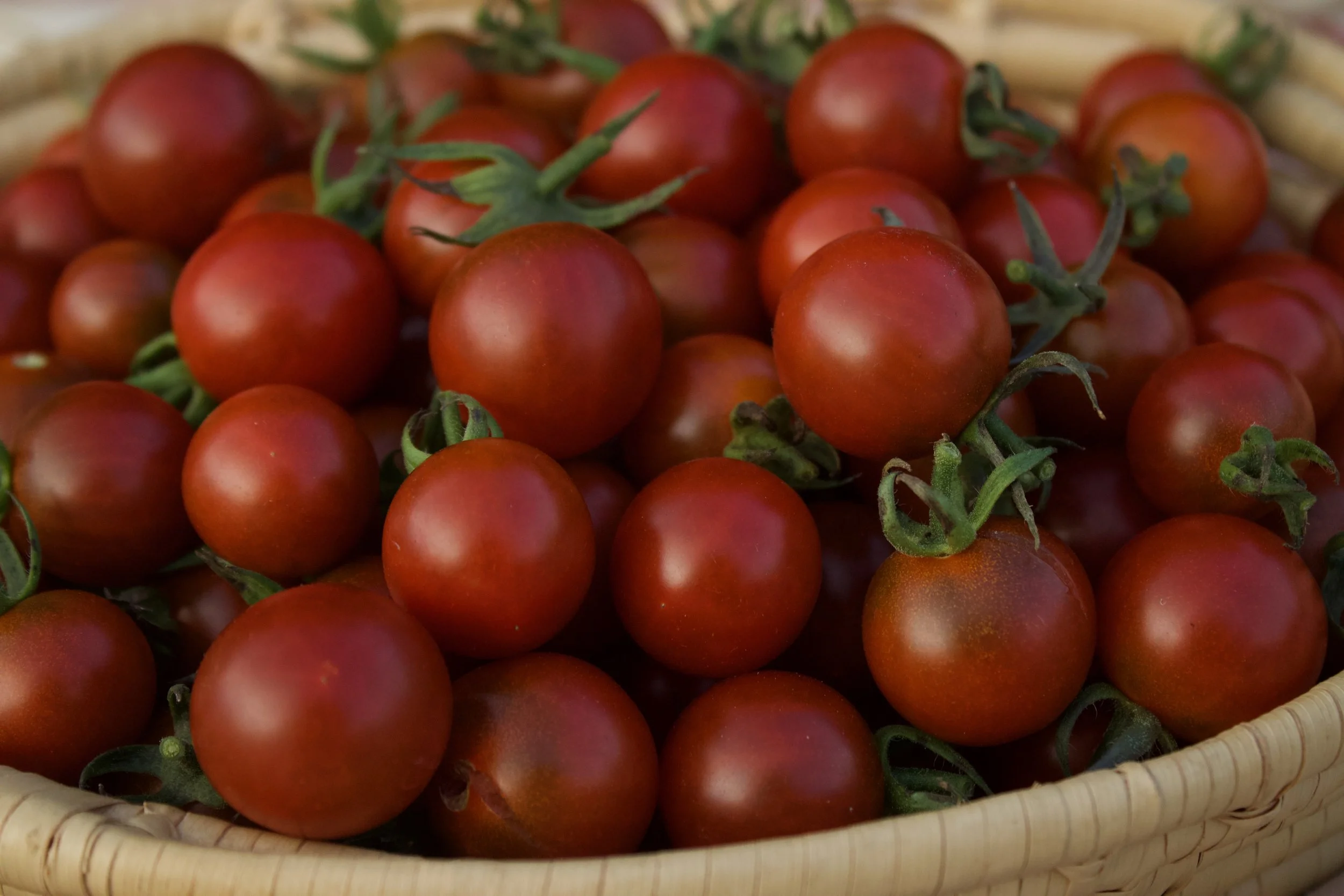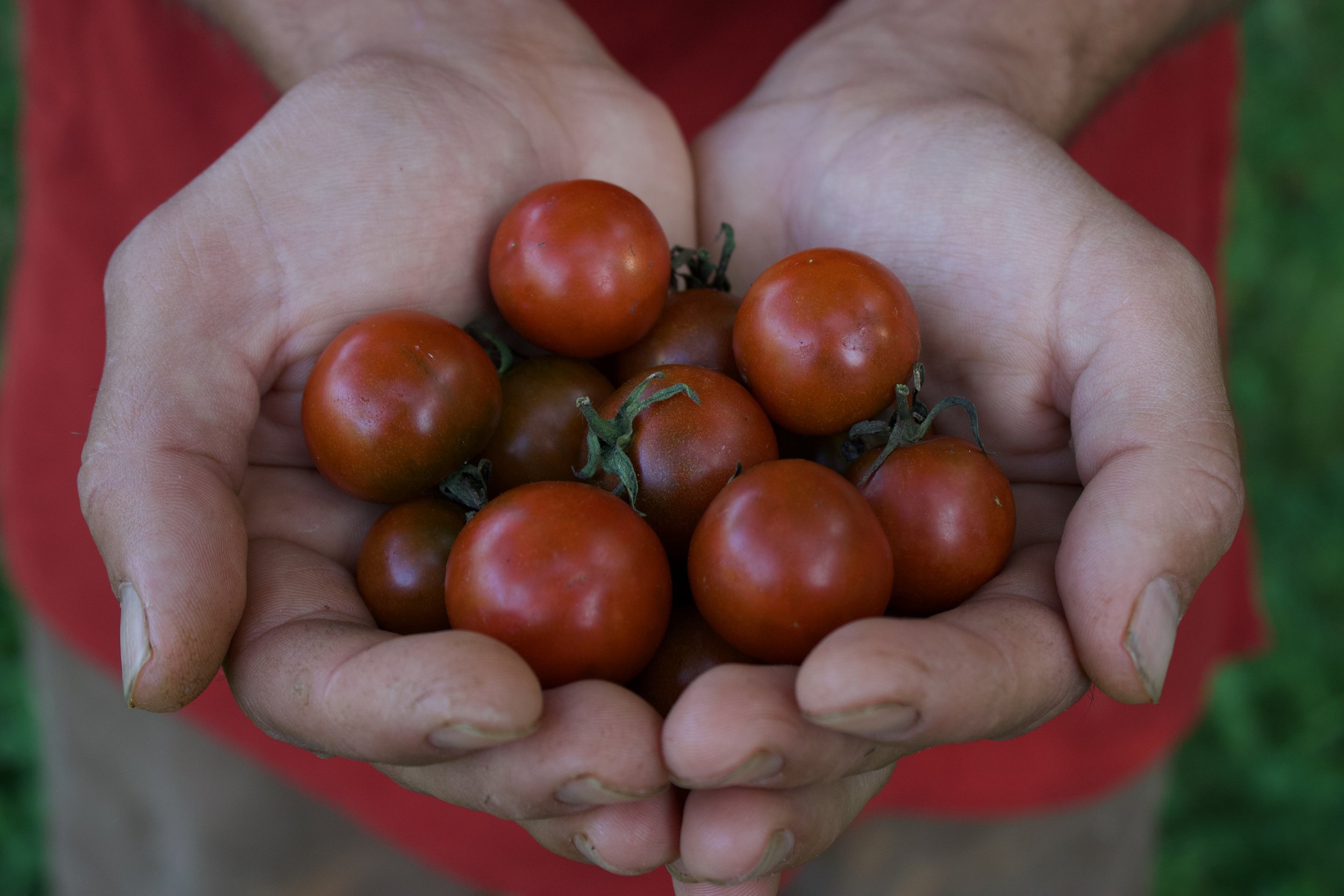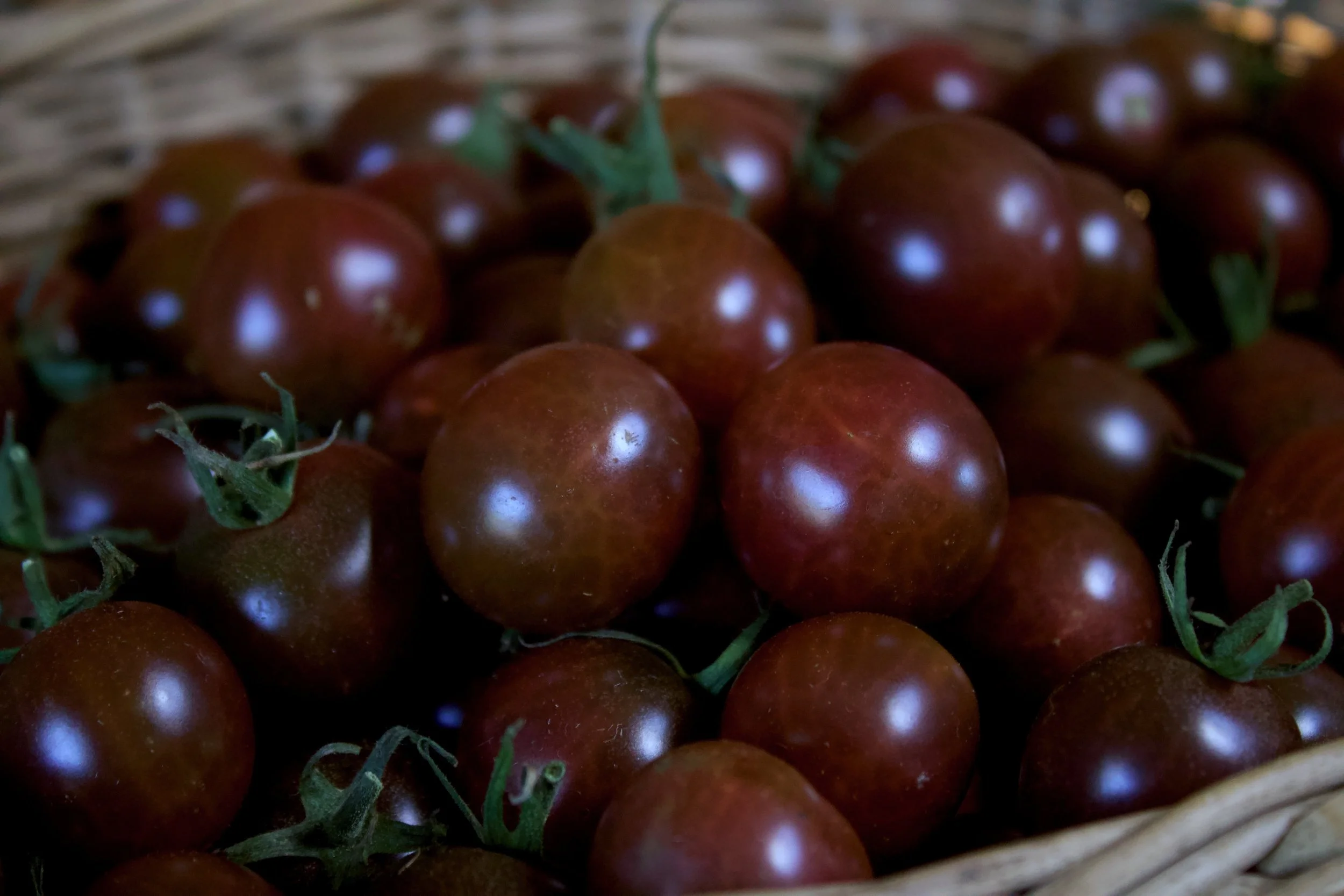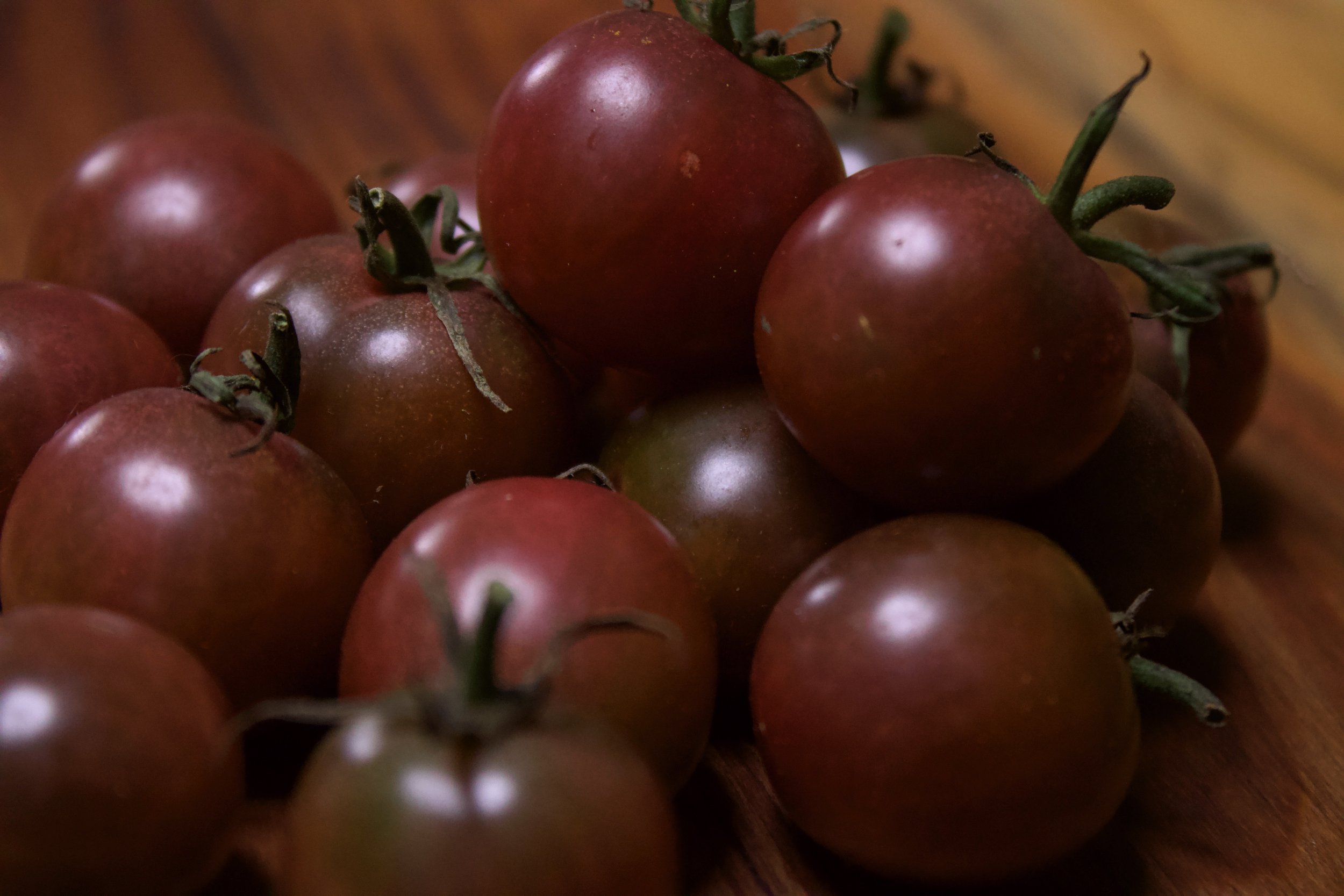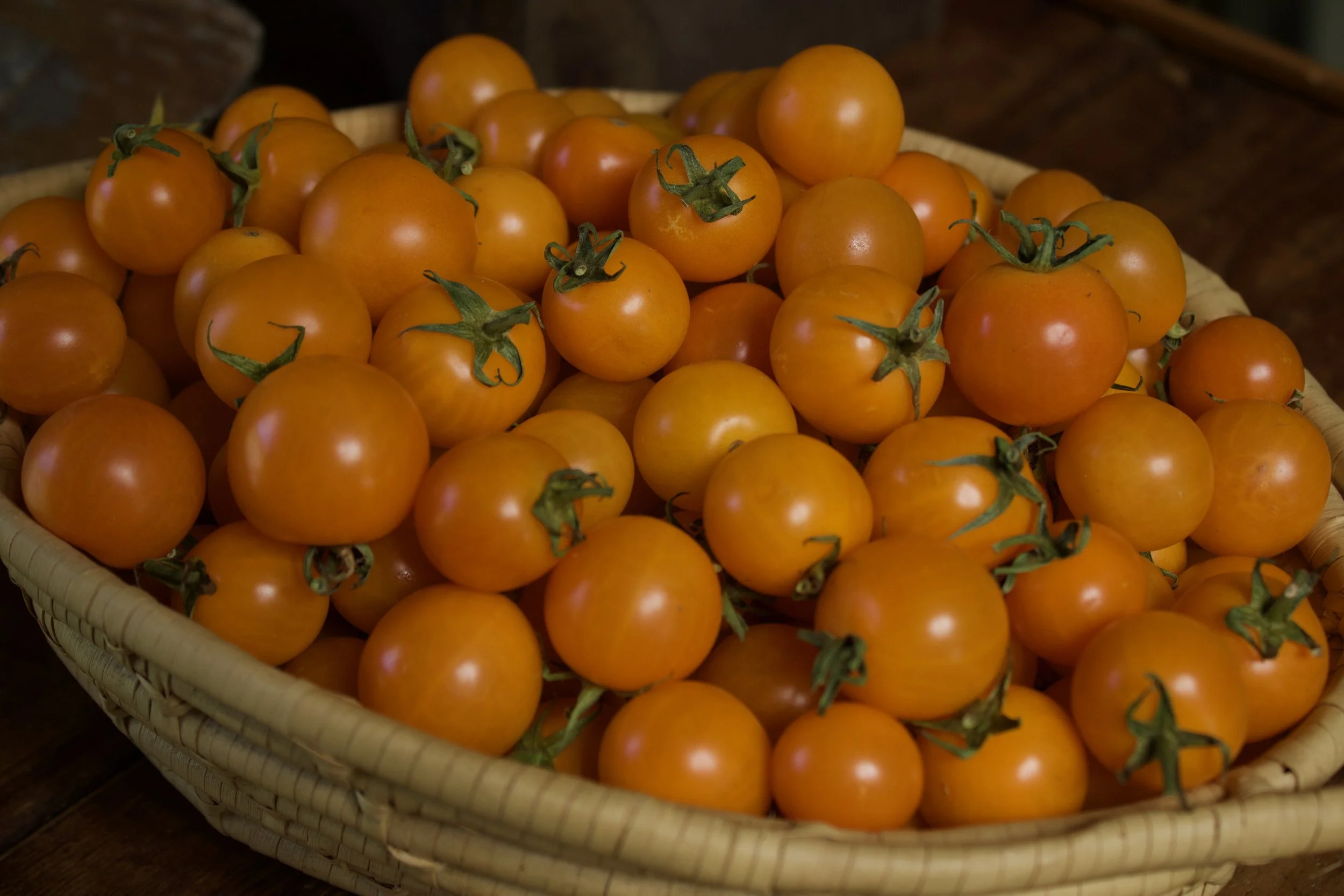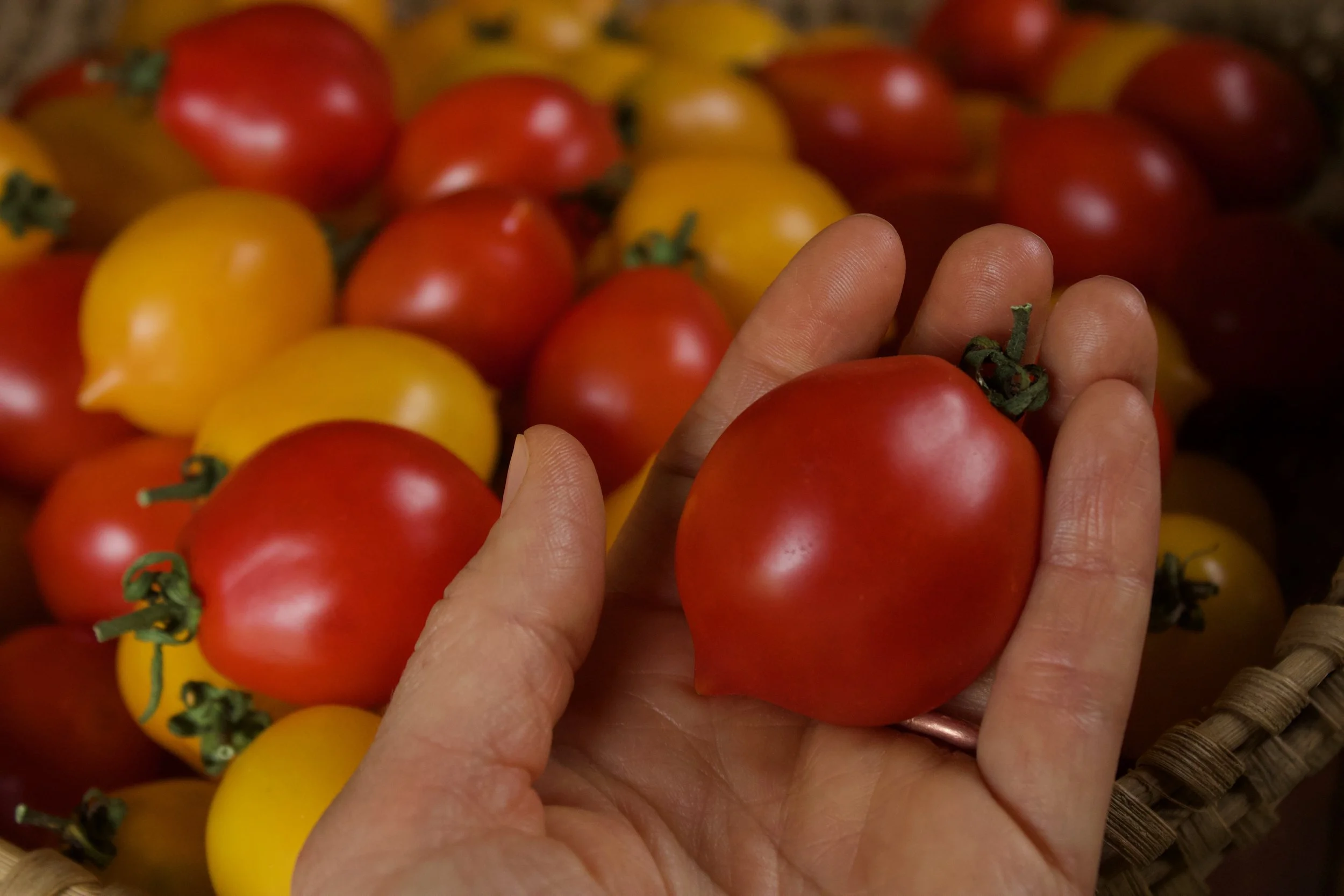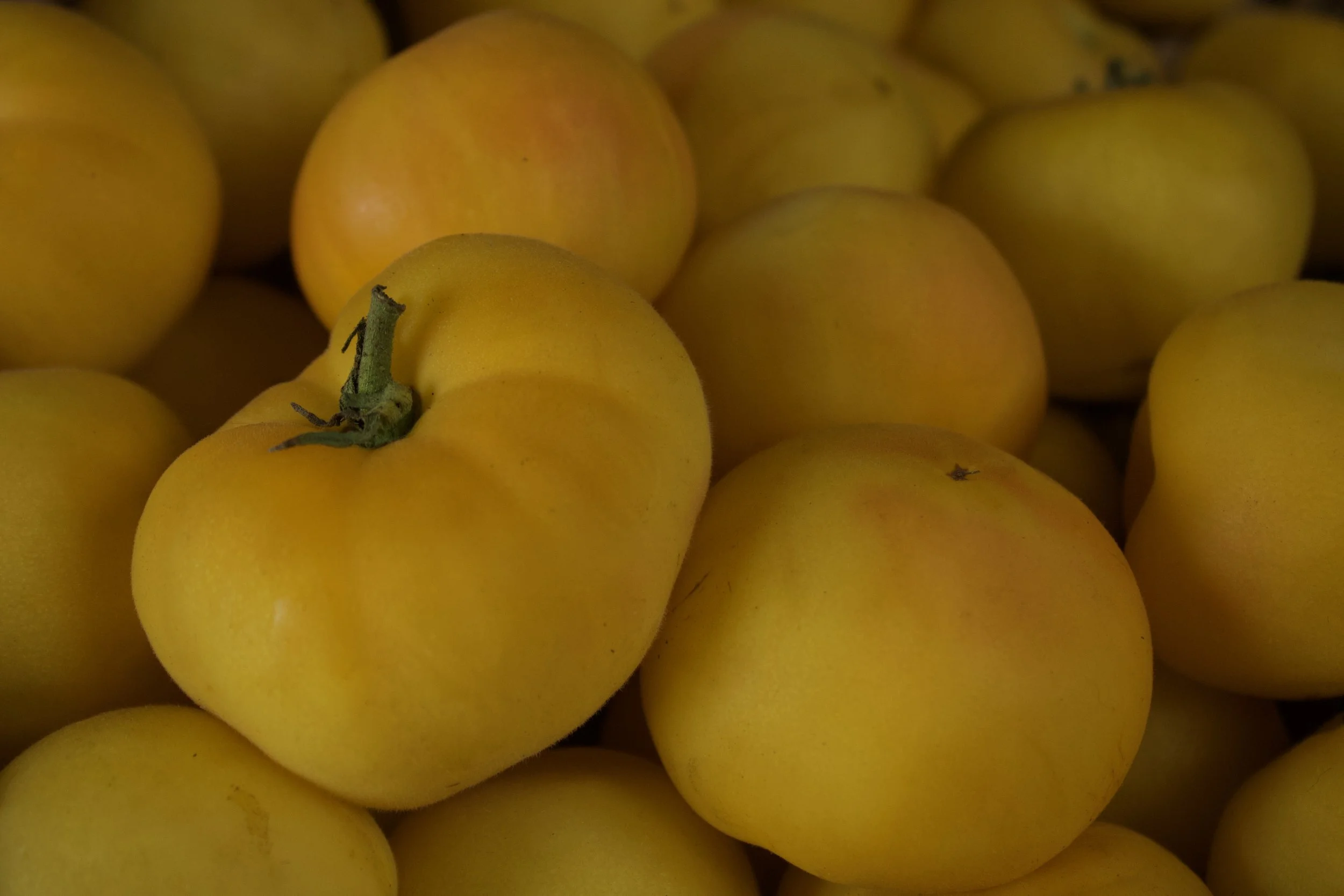Physalis pruinosa
(Indeterminate, Early) Husk cherries, or ground cherries, are a close relative of tomatillos. They are native to South America and have been cultivated throughout North America by Indigenous communities for generations and have since naturalized in every US state, other than Alaska. This particular variety was brought to the National Germplasm collection from Poland and was further selected, named and introduced to US gardeners by seed saver and breeder Will Bonsall. Cossack is candy-sweet balanced with a lovely tart tropical flavor and hints of pineapple. They bear early and prolifically and are not bothered by much in the ways of disease and pests. Their fruits, when harvested and kept wrapped in their husks, remain fresh for two months— even at room temperature! In fact, the flavor continues to deepen and improve. We harvest when fruit is on the cusp of turning a deep golden yellow color and let them finish ripening off of the plant. This allows us to receive higher yields because fruits at peak ripeness drop on the ground and are often eaten. Once picked, the half ripened fruit will continue to ripen over 2 to 3 days and can last for months. Fully green fruits will not ripen off of the plant. This excellent storage quality is very helpful when fruits cannot be eaten, processed or sold at market right away— perfect for homesteaders and market farmers alike!
Growing Instructions:
Start Indoors 6-8 weeks before transplanting to the field after chance of last frost. If growing in a greenhouse sow 8 weeks before desired transplant date.
Plant spacing: 12 to 18 inches apart.
Row spacing: 24 to 36 inches apart
*If planting multiple rows we recommend alternating row spacing at 24 inches and 48 inches. The 24 inch row will be space for a trellis and the 48 inch row will be the walking path. This not only maximizes garden space, but also allows you to trellis two rows of husk cherries on one trellis.
Give husk cherries plenty of compost at time of planting. We also recommend a fall or spring cover crop of peas or another annual legume that will fix nitrogen for the tomato crop.
Mulching is a good idea, however mulching in mid spring will keep soil temperature cooler and may slow growth. Mulching can be done once soil has warmed. Make sure soil pH is between 5.8 and 7.0. If plant needs a growing boost, water with nitrogen tea or compost tea a few times. If trace minerals are inadequate, sprinkle a small amount of woodash or azomite in each planting hole.
Harvest:
We harvest when fruit is on the cusp of turning a full yellow color, almost a half green / half golden, and let them finish ripening off of the plant. This allows us to receive higher yields because ripe fruits drop on the ground and are often eaten. Once picked, the half ripened fruit will continue to ripen over 2 to 3 days and can last for months. Fully green fruits will not ripen off of the plant. Their fruits, when harvested and kept wrapped in their husks, remain fresh for two months— even at room temperature! In fact, the flavor continues to deepen and improve.





